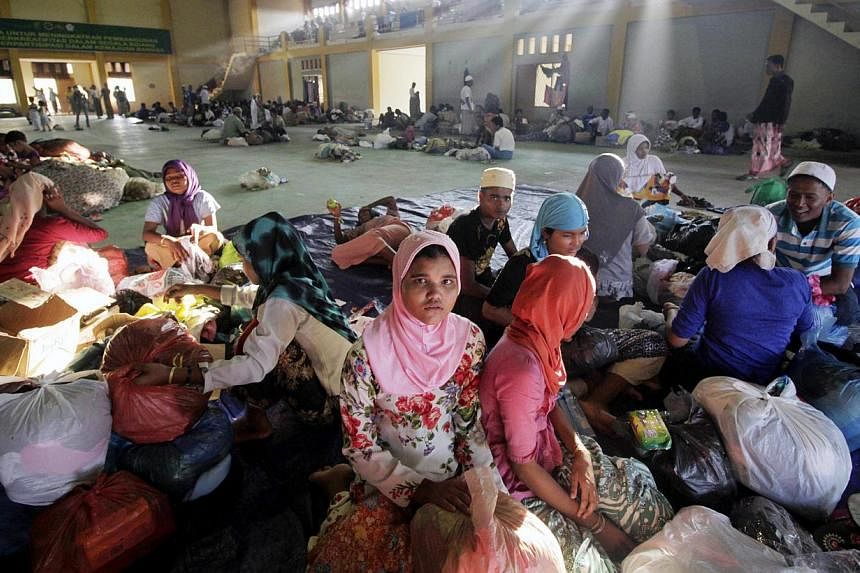PETALING JAYA - Bangladeshi national Mohd Rashid was looking for work to support his family when a man offered him passage to Malaysia for a pittance.
The 26-year-old made the treacherous voyage with more than 400 others in a boat that set sail from the southern coastal town of Teknaf - but ended up half-starved and even poorer.
Mr Rashid can be considered lucky. Some of those who made the trip with him died of sickness and starvation, and their bodies were tossed overboard.
"By boat, we all went to the Myanmar border. There, we were loaded into a larger ship and taken to Thailand. From there we crossed the border into Kedah," he said.
From Kedah, he took a bus to Kuala Lumpur, where a friend picked him up. By then, he was incredibly sick and weak.
"I couldn't work because I was so weak. It took me two months to recover, with my friend looking after me. On the boat, we didn't have enough food or even enough water. It was cramped and dirty."
Teknaf is nicknamed "Malaysia airport". It sees thousands of Bangladeshis make the journey to Malaysia, with ships leaving daily.
"Throughout the whole journey I was repeatedly asked for money. My agent beat me and threatened me until I paid nearly RM14,000 (S$5,170) in total," Mr Rashid told The Star.
In the case of Mr Nazrul Islam, 22, he was sold off to a construction supervisor just hours after crossing into Malaysia from the Thai jungles in October 2013.
Only days earlier, traffickers had demanded 230,000 takas - a sum equivalent to S$3,900 today - from his family in Bangladesh.
"My family's homestead... had already been sold (to pay the traffickers). I simply could not afford to buy my freedom again from my supervisor. Nor could I return home," Mr Nazrul told The Daily Star over the phone from Malaysia.
Seven months later, he managed to escape. He found a job at a glass manufacturing factory but had to work without pay for a whole month because the employer exploited his illegal status.
"It's a curse to be an illegal migrant, always haunted by the fear of being caught by police, while working 12 hours a day and seven days a week without pay."
When he got paid, he said it was only enough to live from hand to mouth.
Mr Nazrul, like many others, is caught in a situation where he can neither work legally nor report his abuser to the police. "Getting a job after travelling to Malaysia by sea is a myth," he said.
THE STAR/ASIA NEWS NETWORK, THE DAILY STAR/ASIA NEWS NETWORK

